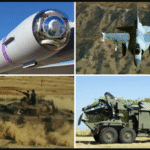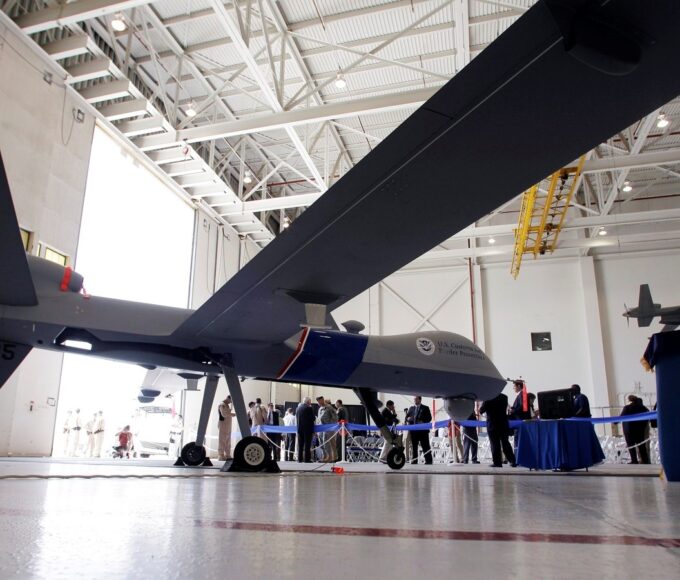Private Security Contractors and the Grey Zone of African Conflicts
Private military contractors are likely to remain part of Africa’s security future, especially where conventional forces fall short. But without clear regulation, oversight, and public transparency, their benefits risk being outweighed by long-term costs to sovereignty, accountability, and legitimacy.

Across battlefields from Libya to Mozambique, private military and security companies (PMSCs) have become critical—but controversial—players in Africa’s evolving security landscape. Operating in the so-called “grey zone” between state-sanctioned warfare and deniable operations, these entities offer combat, logistics, training, and protective services outside the traditional military chain of command.
While some governments view them as force multipliers amid resource constraints, others warn of sovereignty erosion, accountability gaps, and mission creep. This article investigates the rising use of private contractors in African conflicts, their geopolitical implications, and the urgent need for regulation.
The Rise of Private Military Actors in Africa
Private security contractors are not new to Africa, but their roles have expanded dramatically in the past decade. From oilfields in Nigeria to urban warfare zones in Tripoli, they are increasingly embedded in state and non-state operations.
Major Trends (2015–2024):
- Proliferation of Russian, Turkish, and Western PMSCs in Central and North Africa
- Use of contractors for VIP protection, base security, and intelligence
- Direct combat roles assumed by some groups, including in Mali and CAR
- Blurring of state and corporate interests, especially in extractive sectors
According to a 2023 report by the Geneva Centre for Security Sector Governance (DCAF), at least 22 African countries have employed foreign PMSCs in the last decade.
Key Case Studies
- Wagner Group (Russia) in Mali, CAR, and Sudan: Provides direct combat support, political protection, and mining security. Accused of human rights violations in Moura, Mali (2022).
- STTEP International (South Africa/Nigeria): Played a decisive role in pushing back Boko Haram in 2015, using a highly mobile, veteran-led strike force model.
- Executive Outcomes (legacy): Pioneered African PMSC operations in Angola and Sierra Leone in the 1990s. Its model continues to inspire new entrants.
- Frontier Services Group (FSG, China): Offers logistics and security for Belt and Road Initiative assets in East Africa.
- Turkish Contractors in Somalia and Libya: Blend military training, base support, and infrastructure protection—often in support of state-linked interests.
Why African States Hire PMSCs
- Capability Gaps: Many African militaries lack specialised training or equipment, especially for counterinsurgency and VIP protection.
- Speed and Flexibility: Contractors can be deployed rapidly without parliamentary approval.
- Deniability: Allows governments to manage operations with plausible deniability.
- Cost Efficiency: In theory, contractors offer short-term capability without long-term pension or institutional costs.
Risks and Controversies
Despite their utility, PMSCs raise serious strategic and ethical concerns:
- Accountability and Legal Gaps: Most operate in legal grey zones, shielded by weak local regulation.
- Sovereignty Erosion: Overreliance on foreign contractors can reduce state control over national security.
- Human Rights Violations: Documented cases of civilian abuses by contractors go unpunished.
- Corruption and Conflict of Interest: Contracts are often opaque, and linked to ruling elites or foreign powers.
A 2022 report by the UN Working Group on Mercenaries warned that PMSCs have “increasingly acted outside the bounds of international humanitarian law, often with impunity.”
Toward Regulation: African Responses
Some governments and regional bodies are now seeking to regulate the sector:
- South Africa: Enforces stringent export controls on military expertise and PMSC activities.
- Nigeria: Requires foreign contractors to operate under the supervision of the military or DSS.
- African Union (AU): Exploring a continental legal framework on PMSCs through its Peace and Security Council.
However, enforcement remains uneven, and many contractors exploit jurisdictional loopholes or operate under diplomatic covers.
Conclusion: Confronting the Grey Zone
Private military contractors are likely to remain part of Africa’s security future, especially where conventional forces fall short. But without clear regulation, oversight, and public transparency, their benefits risk being outweighed by long-term costs to sovereignty, accountability, and legitimacy.
African states must act decisively to bring PMSCs out of the shadows—through regional protocols, national legislation, and international cooperation. In the absence of such action, the grey zone may only deepen, with Africa’s conflicts increasingly shaped by actors beyond public control.
Private Security Snapshot (2023–2024):
- African countries employing PMSCs: 22+
- Largest PMSC actors: Wagner Group, FSG, SADAT, STTEP, DynCorp
- Most common services: Base security, training, asset protection, ISR
- Legal frameworks in place: 6 African nations with binding legislation
Recent Posts
Categories
- Air & Aerospace17
- Border Security15
- Civil Security6
- Civil Wars4
- Crisis5
- Cyber Security8
- Defense24
- Diplomacy19
- Entrepreneurship1
- Events5
- Global Security Watch6
- Industry8
- Land & Army9
- Leadership & Training5
- Military Aviation7
- Military History27
- Military Speeches1
- More1
- Naval & Maritime9
- Policies1
- Resources2
- Security12
- Special Forces2
- Systems And Technology9
- Tech6
- Uncategorized6
- UNSC1
- Veterans7
- Women in Defence9
Related Articles
INDUSTRY – DEFENCE PROCUREMENT SCANDALS IN AFRICA: LESSONS LEARNED
Defence procurement scandals have left a deep mark on Africa’s security landscape....
ByKing Richard Igimoh, Group Editor ALODecember 19, 2025THE NEW WATCHTOWERS: HOW SURVEILLANCE TOWERS AND DRONES BECAME CENTRAL TO MODERN BORDER CONTROL
Along the Arizona–Mexico border, a 160-foot steel structure Autonomous Surveillance Tower (AST)...
ByKing Richard Igimoh, Group Editor ALODecember 17, 2025WOMEN IN DEFENSE INDUSTRIES: INNOVATORS, ENGINEERS, AND LEADERS
The global defense sector, long viewed as a male-dominated arena, is undergoing...
ByKing Richard Igimoh, Group Editor ALONovember 18, 2025South Africa’s Arms Industry: Lessons for Continental Defence Sustainability
Once the undisputed leader of Africa’s defence manufacturing landscape, South Africa’s arms...
Byadmag_adminJune 27, 2025













